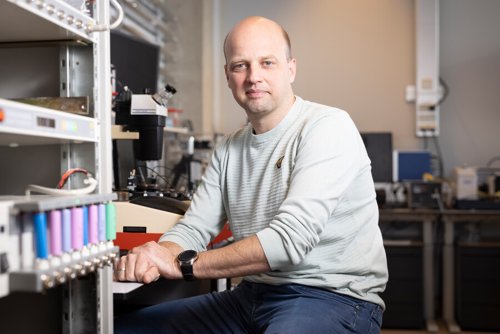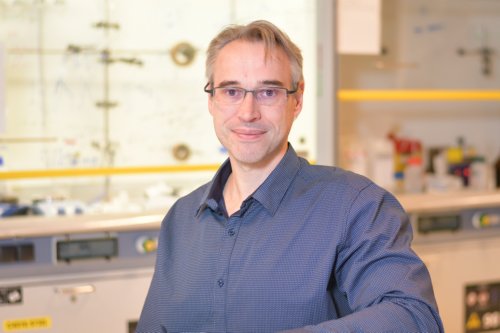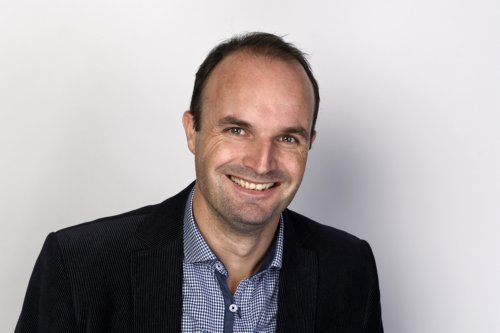UT professors Mark Huijben, Christian Nijhuis and Floris Zwanenburg, all associated with research institute MESA+, have received a Vici grant of EUR 1.5 million from NWO. This will allow them to develop an innovative line of research in the coming years and further develop their own research group. Vici is one of the largest person-centred scientific grants in the Netherlands and is aimed at advanced researchers.
More information on the three different projects below.
Superior microbatteries by tailoring interfaces for an interconnected society
Microbatteries’ performance is currently insufficient for future wireless and autonomous applications of advanced microelectronic devices, and even suffers from fast degradation. Scientists will circumvent the limitations in conventional microbatteries by creating crystalline, highly ordered microbattery architectures. An unique combination of atomically controlled thin film synthesis and detailed characterization will reveal enhancements at the buried interfaces. Advanced integration of the developed multilayers with the industrial silicon platform will enable solutions towards superior energy storage in next generation microbatteries for wireless interconnectivity in our society.

Mark Huijben
Intelligent Molecules for Brain-Like Devices
The energy consumption of modern-day computers and data-centres increases at unsustainable levels driven by new technologies enabled by “big data”, in sharp contrast to our Brains. Brains use a completely different strategy to process vast amounts of data with incredibly high energy efficiencies by using adaptable systems. This research aims to create intelligent molecules that can mimic the computational methods of our Brains and to explore how they can be applied to develop energy-efficient computers.

Christian Nijhuis
Single-atom quantum coherence
The researchers will fabricate electronic circuits with a single atom in the heart of the device. These are ideal to investigate atomic properties, such as the ionisation energy and the nuclear spin. Main goal is to obtain an in-depth understanding of the quantummechanical effects between an atom and its electrons. In the long run these single-atom circuits can be used as the building block of a quantum computer. Such a quantum computer can help solve great societal challenges.

Floris Zwanenburg
About the Vici grant
A total of thirty researchers from Dutch educational and research institutions within the science domains of Exact and Physical Sciences (ENW), Technical and Applied Sciences (TTW) and Social and Human Sciences (SGW) and Healthcare Research and Medical Sciences (ZonMw) will receive Vici funding of up to 1.5 million euros. This will allow the laureates to develop an innovative line of research over the next five years and expand their own research group. Vici is one of the largest person-based scientific grants in the Netherlands and is aimed at advanced researchers.








